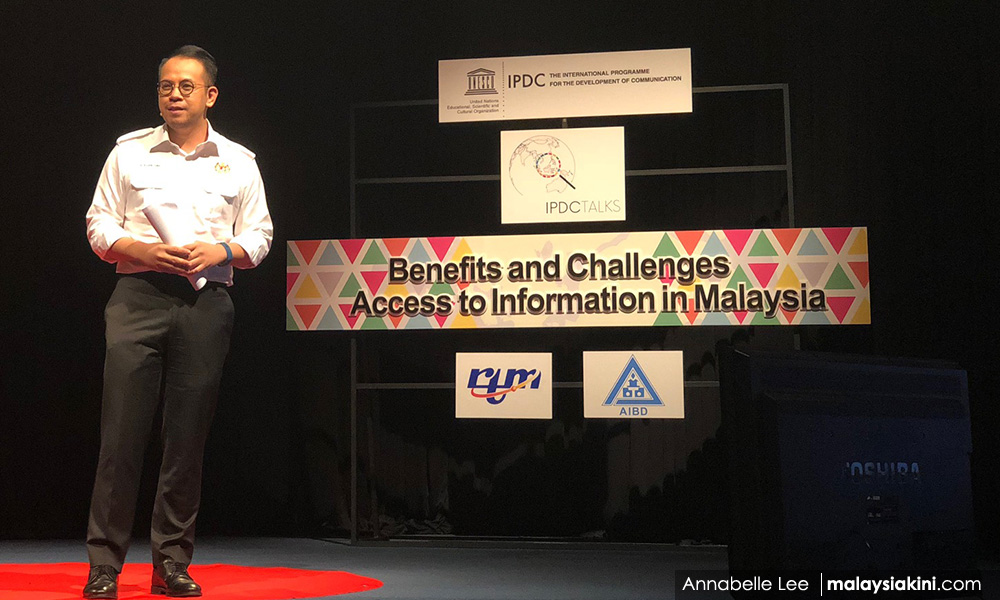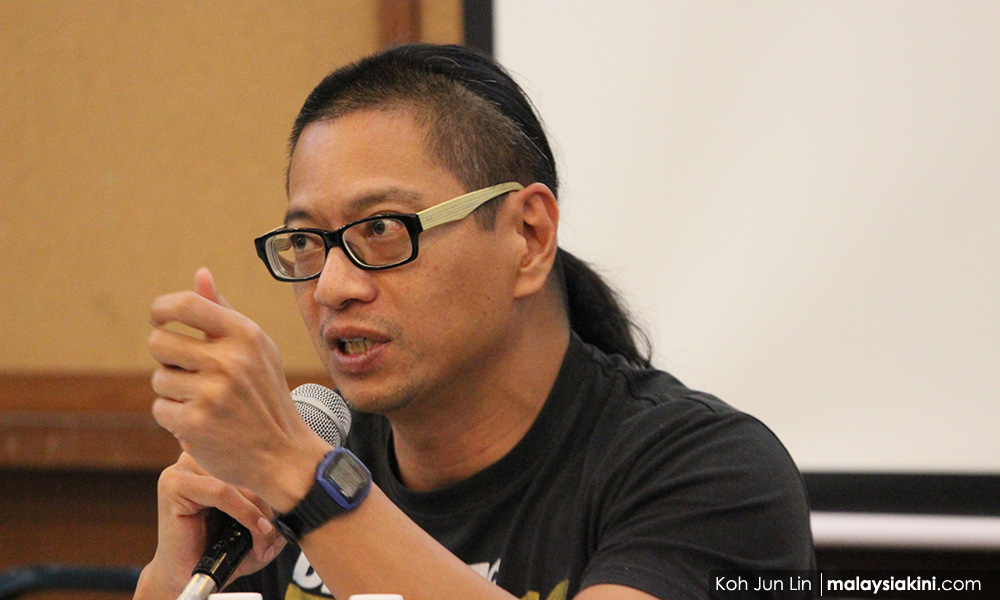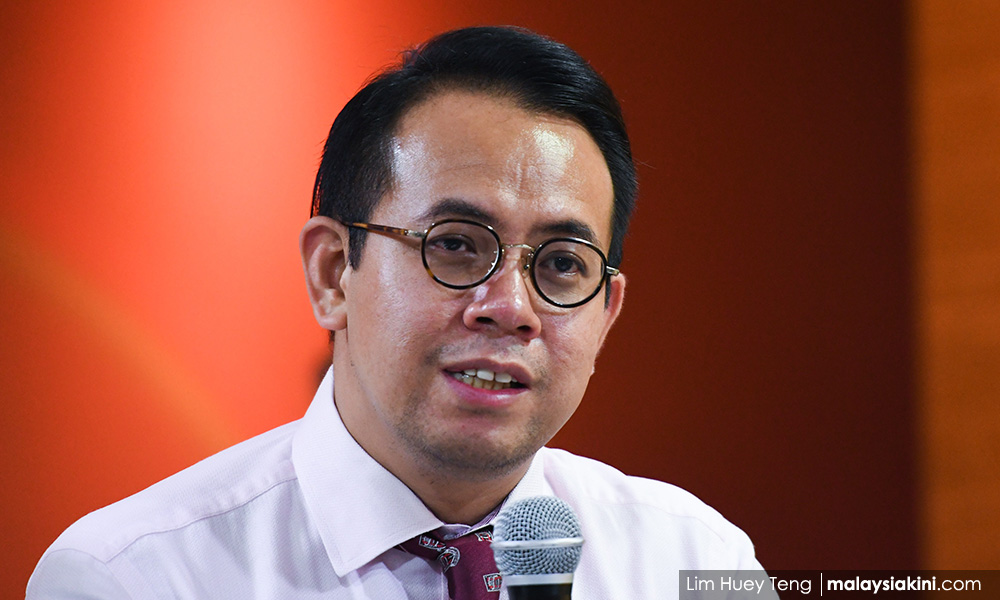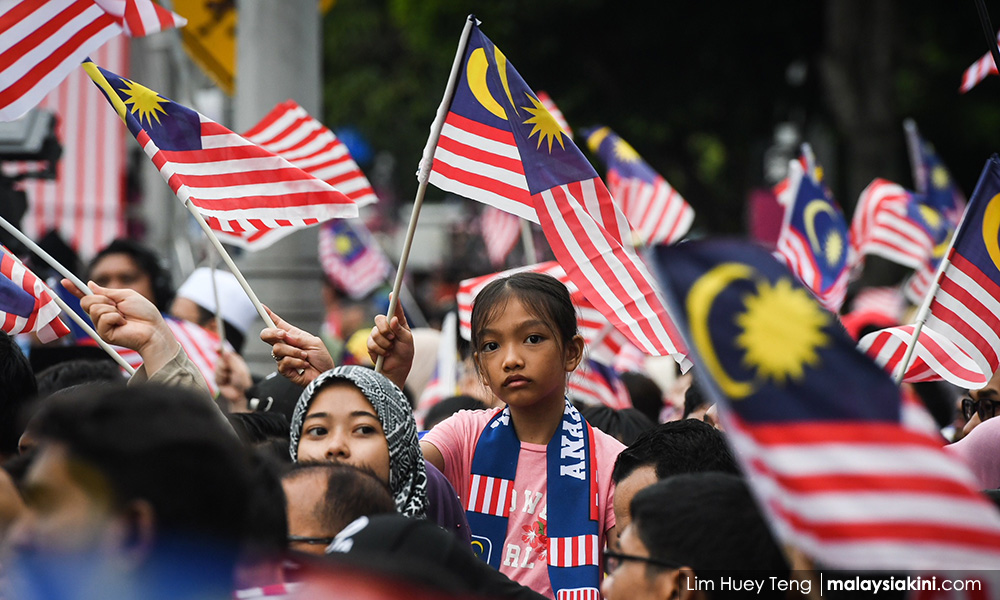
“What we obtain too cheap, we esteem too lightly: it is dearness only that gives everything its value. Heaven knows how to put a proper price upon its goods; and it would be strange indeed if so celestial an article as freedom should not be highly rated.”
― Thomas Paine, The American Crisis
Law lecturer Azmi Sharom's characterisation of the Official Secrets Act in a recent forum as “the giant mad elephant in the room” is noteworthy for a couple of reasons.
The first is that the state always wants to keep secrets from the public; and the second, it points to the mendacity of this new regime, that yet again they are waffling on something they could easily accomplish, except that they too, now understand the advantage of keeping things from the public.
Let me be very clear. In my other life when I was part of the state security apparatus, I was involved in operations that were deemed by the then Umno/BN establishment as “secret”.
In my writing against the Umno regime, I made it clear that I was of the opinion that there were operations carried out by the state security apparatus, sometimes working in concert with other ministries, that justified it being classified as secret.
Unlike some writers, I had no problem acknowledging that certain actions deemed illegal or immoral were necessary for the sake of the nation’s security. Many have disagreed with me but I have not retreated from this position.
At the same forum Azmi (photo) was speaking at, DAP’s Steven Sim, who is also the deputy youth and sports minister, laid out the government’s intention to either arm or repeal the OSA and along with the latter, make specific exceptions in this new Freedom of Information bill.

I of course am for the latter and in my opinion, the former is just another way for this new administration to fall back into old BN habits.
Within that narrow range of exception, especially when dealing with national security, there are several issues that should be kept from the public. These include certain sensitive operations, trade craft, confidential informants, illicit payments for information and a host of other issues that do not neatly fall into the ambit of legality but are necessary to safeguard our nation.
As discussed, these are extremely limited exceptions. In the past, the reputation and security of the country were compromised when the former regime demonstrated that issues classified as “national secrets” were in fact secrets that were damaging to Umno. Not to mention back in the day, we were supportive of all sorts of groups, which blowback we feel now. So there is that.
So when politicians talk about freedom of information and how sometimes it needs to be protected, we should be mindful of what needs to be protected.
Sim is absolutely correct when he argues that when one cites “national security”, they should be questioned as to what exactly they want to keep from the public and how it relates to national security instead of political interests.
However, what was disappointing were Sim’s comments when it came to the question of “Asian values”. God, I really hate it when politicians talk about values. It gets even worse when they talk about “Asian” values. I have noticed this trend when it comes to the non-Malay component of Harapan - Sim has not been the only political operative to voice out such sentiments. Rational Malaysians who care about this country should pay attention to this kind of justifications from politicians.
Sim (photo) made two points worth considering. The first is:
“It is also not fair for us to not take into consideration certain sensitivities – religious values, cultural or traditional world views – when it comes to governance, legislation and the rule of law.”

Really? Could you imagine if an Umno politician said this? Actually, you do not have to imagine. Remember when Bersatu member Rais Yatim babbled on about “our” civilisational, education and country's values, when rejecting the Harapan pledge to recognise the UEC? This is exactly the kind of considerations that only a certain segment of the population wants their leadership to take into account when it comes to governance and policy-making.
The difference here is that it is a DAP political operative promoting this line of reasoning when it comes to a particular issue – freedom of information – and the reality is that his comment could apply to any policy issues that the Harapan regime is considering.
Whose values?
And here’s the real problem. When it comes to religious values or cultural values, whose values are we talking about?
In my piece rejecting this horse manure that Rais said, I wrote this – It all boils down to whose values we are talking about, right? Whose civilisation are we talking about? Whose dominance determines the qualities of being ‘Malaysian’, whatever the hell that means? Non-Malay culture has its foundation in thousands of years of building up to something. So do not tell me about the “core of civilisation”.

And really what does “traditional world views” mean? I guess it means anything we can shoehorn into our values system because local politicians are always going on about the evil “Western” values that threaten to destroy the fabric of this country… or is it the fabric of Malay society?
And the second point Sim makes is as follows:
“It is very easy and popular to say that everyone is universal and everyone has the same idea of freedom, human rights and freedom of information”.
Why do I think, that before May 9, many political operatives especially from the DAP would have had no problem proclaiming the universality of values when it came to freedom, human rights and freedom of information?
Not only that, the true Muslim meme, which is predicated on the idea that universal values cut across religious lines, as well as opposition-supporting Muslims would have had no problem with the supposedly secular values of the opposition. So, what changed?
Since coming into power, non-Malay political operatives have suddenly become sensitive to what MCA and MIC went though all those years kowtowing to a certain racial group and justifying such actions with dodgy ideological claptrap, like social contract and power sharing.
In the meantime, some political operatives from MCA and MIC discovered that being part of the opposition meant that they had the freedom to espouse universal values as a panacea to the racial and religious toxins of Umno. Indeed, the whole Bangsa Malaysia kool aid is predicated on the acceptance of universal definitions of those values.
However, being the establishment now and having to take into account the sensitivities of Malay power structures and their voting base, non-Malay political operatives suddenly find themselves constructing two pillars for this new Malaysia. These pillars seem to be, “Don’t spook the Malays” and the second is when justifying inaction - “Coming as close as we can to get the government to say those laws are wrong”.
S THAYAPARAN is Commander (Rtd) of the Royal Malaysian Navy. - Mkini


No comments:
Post a Comment
Note: Only a member of this blog may post a comment.